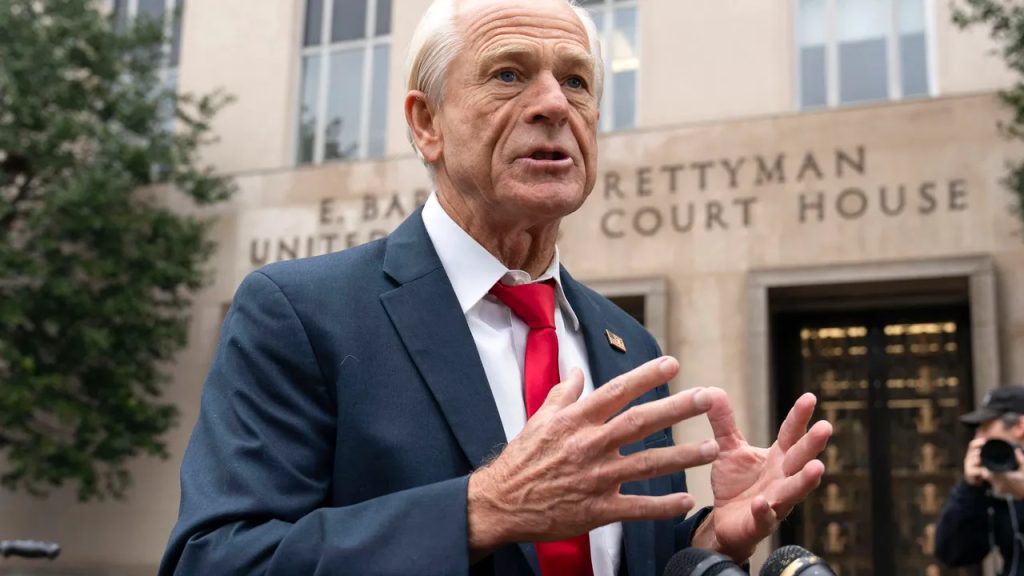Peter Navarro, the former White House trade adviser under President Donald Trump, has officially reported to a federal prison in Miami to commence a four-month sentence. This sentencing comes as a result of Navarro’s refusal to comply with a congressional subpoena, an act that has sparked considerable discussion about executive privilege and separation of powers. Chief Justice John Roberts recently denied Navarro’s last-minute request to stay free during his appeal process, a decision that led Navarro to claim an “unprecedented assault” on constitutional principles in a press briefing prior to his surrender.
Navarro’s legal troubles stem from his noncompliance with a subpoena issued by the House select committee investigating the Jan. 6, 2021, Capitol attack. The committee sought documents and testimony related to Navarro’s actions after the 2020 election and his efforts to challenge the certification of Electoral College votes. Despite his defense claiming executive privilege, the judiciary has thus far ruled against Navarro, leading to his current incarceration.
The Road to Conviction
Navarro’s conviction and the ensuing legal proceedings have been a focal point of contention, highlighting the complex interplay between congressional oversight and executive confidentiality. After being charged with contempt of Congress, Navarro faced a trial that concluded with a guilty verdict, emphasizing the judiciary’s stance on the enforceability of congressional subpoenas. His sentence, handed down in January, was appealed, but efforts to delay imprisonment have been unsuccessful, with a three-judge panel and subsequently the Supreme Court rejecting his bids for a stay.
The case has raised significant legal questions about the limits of executive privilege and the obligations of presidential advisors when faced with legislative demands for information. Navarro’s legal team has argued that his prosecution violates the separation of powers doctrine, a claim that is yet to find favor in court. As Navarro begins his sentence, the legal community and political observers are closely watching the implications of this case for future interactions between the branches of government.
Navarro’s situation is unique in that he is the first former White House official to go to prison for contempt of Congress in this context. His conviction underscores the judiciary’s willingness to enforce congressional subpoenas, even against high-ranking officials claiming executive privilege. As the legal battles unfold, the outcome of Navarro’s appeals may set new precedents for the accountability of presidential advisors and the scope of executive privilege in the face of congressional inquiries.


